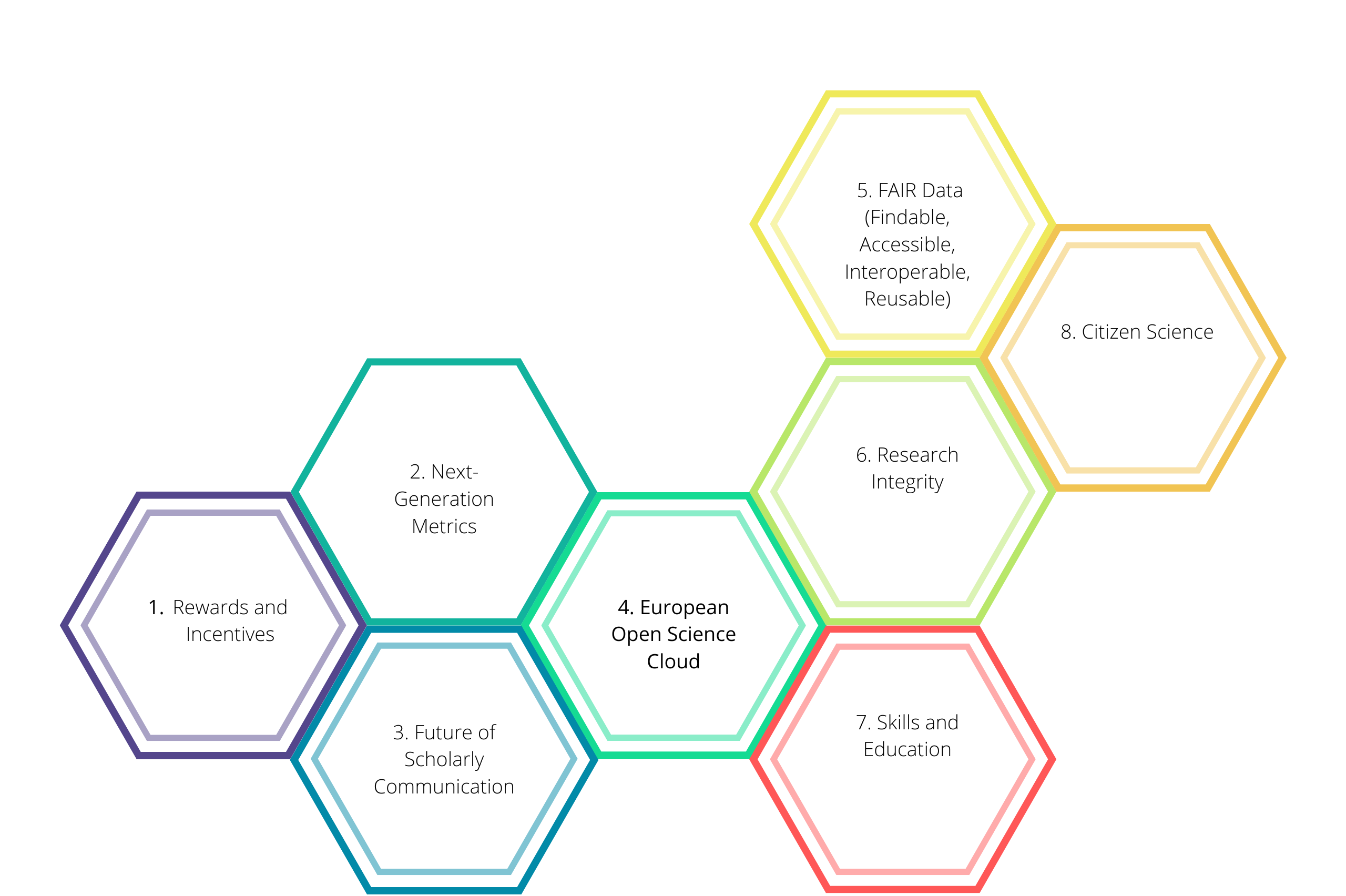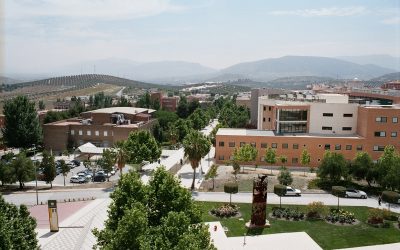EU 8 Ambitions of Open Science
The European Commission has identified eight ‘pillars’ or ‘ambitions’ on which the principles of Open Science are based:
1. Rewards and Incentives
Career evaluation systems for researchers should give full recognition to open scientific activities.
2. Research Indicators and Next-Generation Metrics
New indicators need to be developed to complement traditional measures of research quality and impact to reflect open science practices.
3. Future of Scholarly Communication
All peer-reviewed scientific publications should be freely accessible and the sharing of different types of research results should be encouraged.
4. European Open Science Cloud
EOSC (European Open Science Cloud) is a federated and open multidisciplinary virtual environment where researchers, innovators, companies and European citizens can publish, find and re-use data, tools and services for research, innovation and education purposes.
5. FAIR Data (Findable, Accessible, Interoperable, Reusable)
EU-funded scientific research results should be managed according to FAIR principles (searchable, accessible, interoperable, and reusable data) and shared openly. This should be the default approach.
6. Research Integrity
All research funded by the EU must adhere to agreed standards of research integrity.
7. Skills and Education
All scientists in Europe should have the necessary skills and support to apply open scientific research methods and practices.
8. Citizen Science
Scientific research should increasingly involve citizens, who can make a significant contribution and be recognised as valuable European producers of scientific knowledge.



